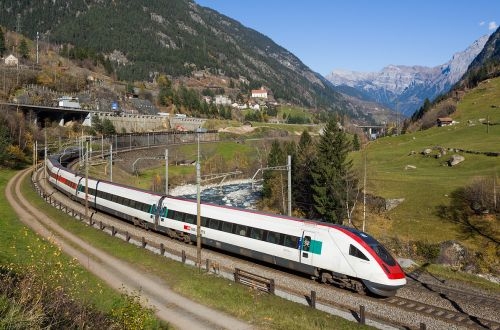Operating expenditure fell 1.5% to SFr 8.5bn. While the passenger sector recorded a positive result with revenues rising 25.6% to SFr 131 m, real estate revenues declined 13.3% to SFr 342m, while infrastructure was down 46.3% to SFr 96m. Most disappointing of all however was the performance of the company's freight unit SBB Cargo, which recorded a loss of SFr 22m after two years in profit.
On the positive side, ridership was higher than ever before at 1.21 million passengers a day, up 2.7% from 2014, and 18.6 billion passenger-km for the full-year (+1.8%). Punctuality also improved by a 0.1% to 87.8%, which still makes the SBB the most punctual rail operator in Europe. Performance by SBB Cargo was also up by 4.1% to 15.1 billion net tonne-km.
The drop in profit was mainly due to the effect of the strong Swiss franc: without this factor, profits would have SFr 80m higher, according to Mr Ulrich Gygi, chairman of the board of directors. Nonetheless, he expressed satisfaction with the way SBB is meeting the challenge, while pointing out the need for greater efficiency and more stringent cost controls. The company introduced a programme dubbed RailFit 20/30 last November, with the aim of cutting costs by SFr 550m by 2020 and SFr 1.76bn by 2030. It plans to cut at least 900 jobs by 2020, though it will employ more personnel in certain areas.
This year will be marked by the opening of the 57km Gotthard base tunnel which will come into operation in December, potentially increasing the capacity for transalpine railfreight traffic by 59% by 2030. In addition there will a change at the top, with Mrs Monika Ribar, currently vice-chairman, taking over from Gygi as chairman in June.

